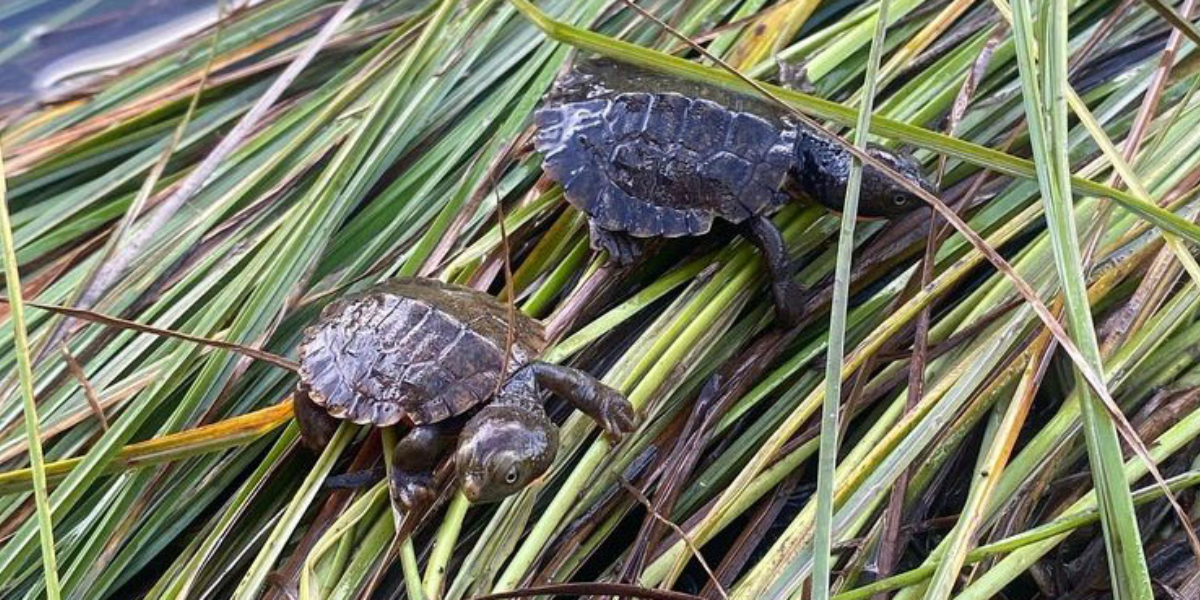The MacDonald River has received a significant ecological boost thanks to the combined efforts of the University of New England (UNE)team.
Over the past months, UNE scientists have incubated and hatched 1521 eggs to boost the local population of Bell’s Turtles.
The endangered Bell’s Turtles live in shallow and deep pools in the upper reaches of the granite country.
Their populations have become threatened thanks to pollution, sedimentation, trampling and damage to river banks by grazing stock.
Bell’s turtles are also in trouble because foxes are raiding 95 – 99% of the nests each season.
There are many adult Bell’s Turtles in our waterway, but there are very few juveniles.
To address the declining numbers of Bell’s Turtles, the University of New England has collaborated with the Northern Tablelands Local Land Services to produce turtle hatchlings from incubators.
These efforts are part of the “Turtles Forever” project has been ongoing for six years, and this is the largest number of hatchlings UNE has produced.
The research is part of Louise Streeting’s PhD project with assistance from Ecology honours student Tessa Stewart.
“Since Bell’s Turtles are omnivorous, they keep ecosystems healthy,” said Stewart.
“They ensure there aren’t too many invertebrates or fish and act like an indicator for the river’s overall health.
“Turtles are very sensitive to environmental changes, so if their numbers are robust, it’s a positive sign.”
Niangala Public School recently joined the researchers to release 70 turtle hatchlings into the Macdonald River.
“Getting local kids involves creatives positive community engagement.”
“It’s also awesome for kids to see baby turtles because it’s an experience that really sticks with them.
They’ll go home and tell their parents, who are often landholders, who may then investigate how they can protect turtles on their land.
It’s about getting the word out that these turtles are endangered, and it’s a fantastic opportunity for kids.”
The goal is that these turtles will show up in the UNE’s surveys in two to three years and that they’re surviving and thriving in the wild.
Like what you’re reading? Support New England Times by making a small contribution today and help us keep delivering local news paywall-free. Donate now


